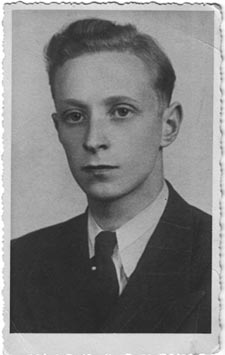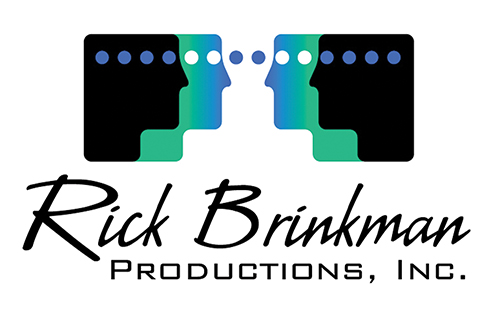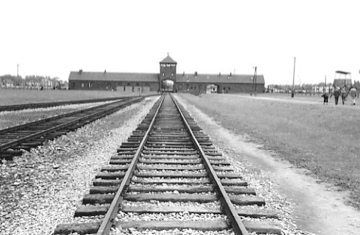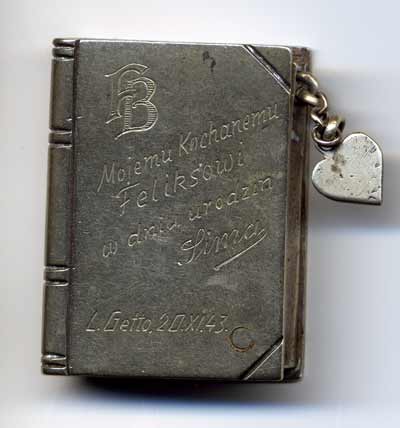 I spent the summer of 2008 in NYC taking care of my elderly father. (See “Priorities in Black and White”). Then I brought him to my home in Portland, Oregon for a couple of weeks of intensive naturopathic therapies. When I dropped my father off in NYC in mid September and flew off to the UK for seminars, it was to be the first time in two and a half months that he didn't have someone with him at all times. Here is what happened.
He not only survives but he thrives. He has more energy and memory than before he was hospitalized. He is back at work managing a commercial office building for his former partner in the disco nightclub business, not because he has to work, but because it gives him pleasure. He drives to work each day from Manhattan to the Bronx.
I spent the summer of 2008 in NYC taking care of my elderly father. (See “Priorities in Black and White”). Then I brought him to my home in Portland, Oregon for a couple of weeks of intensive naturopathic therapies. When I dropped my father off in NYC in mid September and flew off to the UK for seminars, it was to be the first time in two and a half months that he didn't have someone with him at all times. Here is what happened.
He not only survives but he thrives. He has more energy and memory than before he was hospitalized. He is back at work managing a commercial office building for his former partner in the disco nightclub business, not because he has to work, but because it gives him pleasure. He drives to work each day from Manhattan to the Bronx.
Three months after leaving him, I returned with my family to celebrate his 90th birthday. We had a party for him at O’Flanagans bar in NYC where the idea for Adams Apple (the disco he opened in 1971) was born. And being the kind of guy he is, he flirted with the girls at the bar and danced the night away.
My father Felix Brinkmann is a survivor. During World War II he was in three concentration camps. When my family and I visited Auschwitz we saw samples of well-organized handwritten spreadsheets created by the Nazis that showed the profit to the Reich from the slave work of a prisoner. If not purposely killed early, an initially healthy prisoner would be worked to death by the sixth month. My father survived in the camps for a full year.
His father was an electrical engineer so my father, Felix, was very familiar and comfortable with all things electric. In that era, it would be the geeky equivalent of a computer programmer today. He also had a natural ability to fix things, even things he never saw before. It was those skills, his ability to work, and his never give up attitude that allowed him to survive.
 When he was in the Lodz ghetto (before being shipped out to the camps) he was in charge of a telephone repair factory. A German officer hearing about his ability to fix things brought him a record player and asked if my father could make it work. Felix said of course (even though he had never seen the inside of one before). He asked the German officer to leave it and a few records for a couple of days. Felix “the electrician” fixed it in a matter of minutes and as a treat to his “employees” he brought all the workers at the factory together to hear the music. People didn't have such things in the ghetto and hadn't heard music for years. Most of the employees were young women and some of them insisted, "Herr Brinkmann you must dance." My father chose my mother. A day later he made her his secretary, even though she couldn’t type, but as my dad said, “She sure could kiss.” And the rest is history.
When he was in the Lodz ghetto (before being shipped out to the camps) he was in charge of a telephone repair factory. A German officer hearing about his ability to fix things brought him a record player and asked if my father could make it work. Felix said of course (even though he had never seen the inside of one before). He asked the German officer to leave it and a few records for a couple of days. Felix “the electrician” fixed it in a matter of minutes and as a treat to his “employees” he brought all the workers at the factory together to hear the music. People didn't have such things in the ghetto and hadn't heard music for years. Most of the employees were young women and some of them insisted, "Herr Brinkmann you must dance." My father chose my mother. A day later he made her his secretary, even though she couldn’t type, but as my dad said, “She sure could kiss.” And the rest is history.
He spent the next year in the concentration camps; six months in Auschwitz (Poland), two weeks in Mauthausen (Austria), and five months in Ebensee (Austria). While in Auschwitz he was picked for the gas chamber five times and five times got out of it because he could speak perfect German and explain his value as an electrician. This summer and fall when we would discuss his life threatening illness, his response was to show me the numbers on his arm and say, "Big deal. I'm a survivor." 
In dealing with my father’s illness I am amazed that we have a medical system that can prevent people from dying from a life threatening disease, but then release them with no care whatsoever to actually help them recover. Out of the ten medications he was prescribed, none of them produce healing. They all just force a certain physiologic response. It would be difficult for a young person to recover from the liver issue my father had, but for an older person, it’s nearly impossible. That's where naturopathic medicine comes in. I brought my father back to Portland for two weeks of intensive naturopathic therapies, which included I.V. vitamins, B12 shots and a supplement regime to support the liver and other vital organs. For the entire month of August following his release from the hospital he didn’t even remember being hospitalized for the month of July. After one week of naturopathic treatment he could remember the day and time we were flying back to NY. Before the illness I could barely get him to walk a block. Now he not only walks six blocks, but he does it with intention like any self-respecting New Yorker.

Although my naturopathic medical course took me into the mind/emotions, relationships and it’s affect on your well-being, this experience re-energized me in terms of what is possible physically.
I want to share the benefit of that with you, so in the coming months I will be interviewing some exceptional holistic healers and posting those interviews. Many of these will be audio downloads, while some will be articles by guest authors within the Conscious Communicator e-article series. Here’s to your health and I’m here to support you.
Dr. Rick Brinkman
-
PICTURED ABOVE: From Top to Bottom:
Felix Brinkmann 1939, age 21,
Felix and Simone 1946,
Felix Brinkmann's concentration camp tatoo 2008,
Felix Brinkman at his 90th birthday part November 20, 2008.


 My father being the dedicated worker and leader that he naturally was rose quickly to run a telephone repair factory in the ghetto. As mentioned in an earlier post (The Radio) he understood electricity and had a knack for fixing things. The German officer in charge of the whole ghetto, hearing about his ability to fix things brought my father to his office. The officer had a record player, a very advanced design for the time, that wasn't working correctly and asked if my father could fix it. Felix said of course (even though he had never seen the inside of one before) and said he needed to take it back to his workshop with a few records for a couple of days.
My father being the dedicated worker and leader that he naturally was rose quickly to run a telephone repair factory in the ghetto. As mentioned in an earlier post (The Radio) he understood electricity and had a knack for fixing things. The German officer in charge of the whole ghetto, hearing about his ability to fix things brought my father to his office. The officer had a record player, a very advanced design for the time, that wasn't working correctly and asked if my father could fix it. Felix said of course (even though he had never seen the inside of one before) and said he needed to take it back to his workshop with a few records for a couple of days. My father, Guido Felix Brinkmann, was a German from Latvia who ended up in Poland on a program that moved German people into occupied territories. When it was time to join the military he innocently and honestly wrote on his application that his mother was Jewish but converted to Lutheran before he was born. That brought the proverbial "knock on the door" by the Gestapo and he was thrown into the Lodz Ghetto.
My father, Guido Felix Brinkmann, was a German from Latvia who ended up in Poland on a program that moved German people into occupied territories. When it was time to join the military he innocently and honestly wrote on his application that his mother was Jewish but converted to Lutheran before he was born. That brought the proverbial "knock on the door" by the Gestapo and he was thrown into the Lodz Ghetto. When he was in the Lodz ghetto (before being shipped out to the camps) he was in charge of a telephone repair factory. A German officer hearing about his ability to fix things brought him a record player and asked if my father could make it work. Felix said of course (even though he had never seen the inside of one before). He asked the German officer to leave it and a few records for a couple of days. Felix “the electrician” fixed it in a matter of minutes and as a treat to his “employees” he brought all the workers at the factory together to hear the music. People didn't have such things in the ghetto and hadn't heard music for years. Most of the employees were young women and some of them insisted, "Herr Brinkmann you must dance." My father chose my mother. A day later he made her his secretary, even though she couldn’t type, but as my dad said, “She sure could kiss.” And the rest is history.
When he was in the Lodz ghetto (before being shipped out to the camps) he was in charge of a telephone repair factory. A German officer hearing about his ability to fix things brought him a record player and asked if my father could make it work. Felix said of course (even though he had never seen the inside of one before). He asked the German officer to leave it and a few records for a couple of days. Felix “the electrician” fixed it in a matter of minutes and as a treat to his “employees” he brought all the workers at the factory together to hear the music. People didn't have such things in the ghetto and hadn't heard music for years. Most of the employees were young women and some of them insisted, "Herr Brinkmann you must dance." My father chose my mother. A day later he made her his secretary, even though she couldn’t type, but as my dad said, “She sure could kiss.” And the rest is history.
